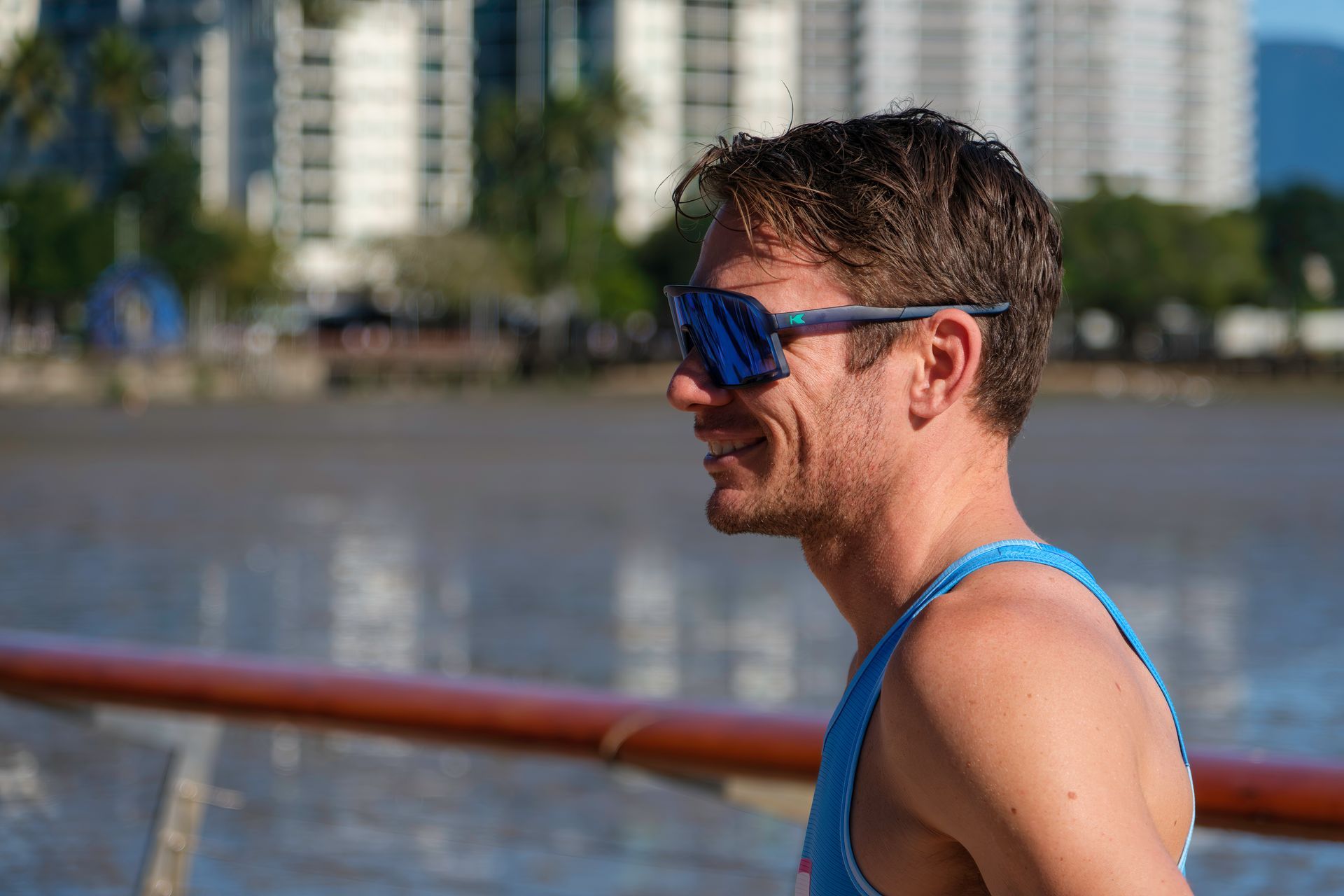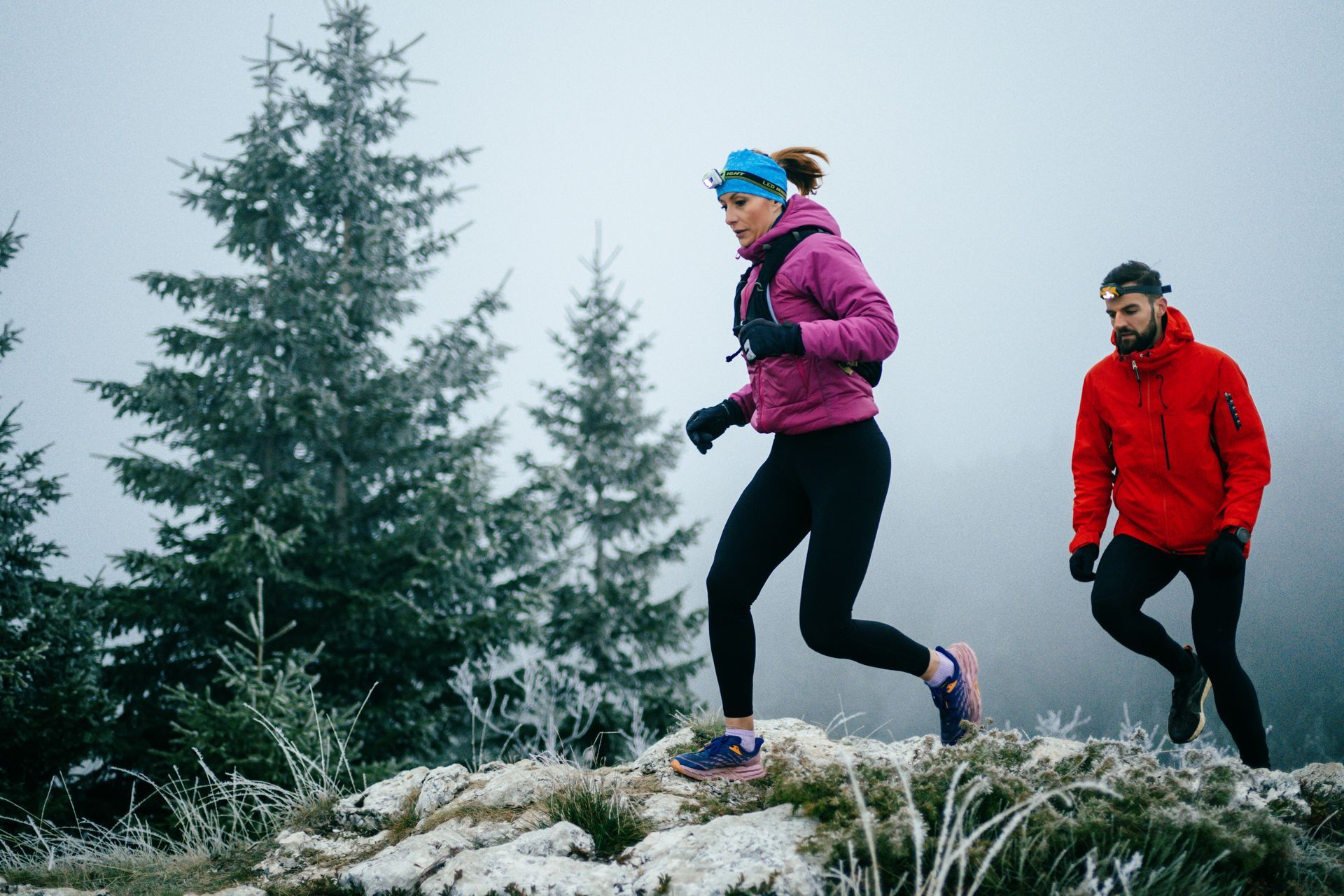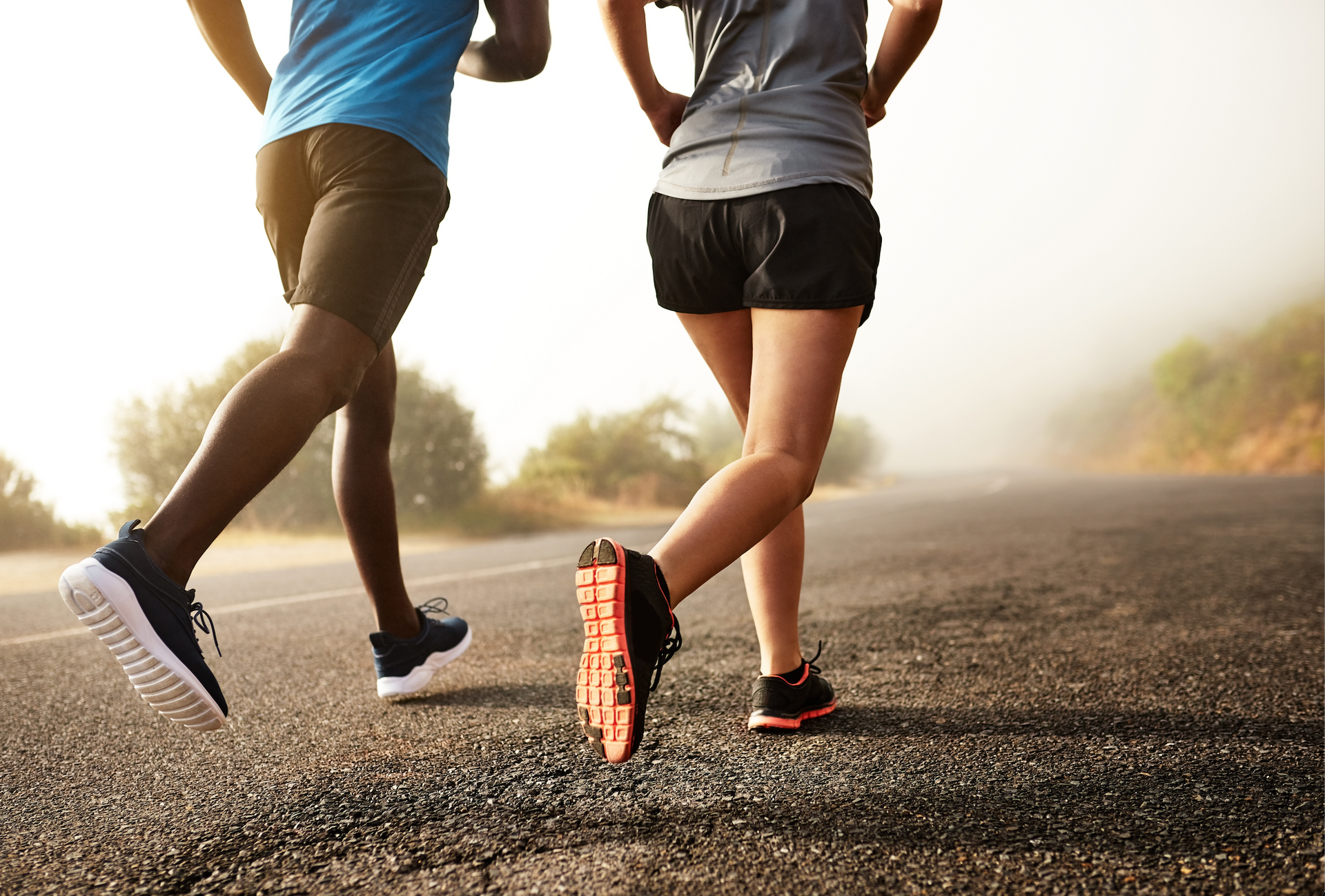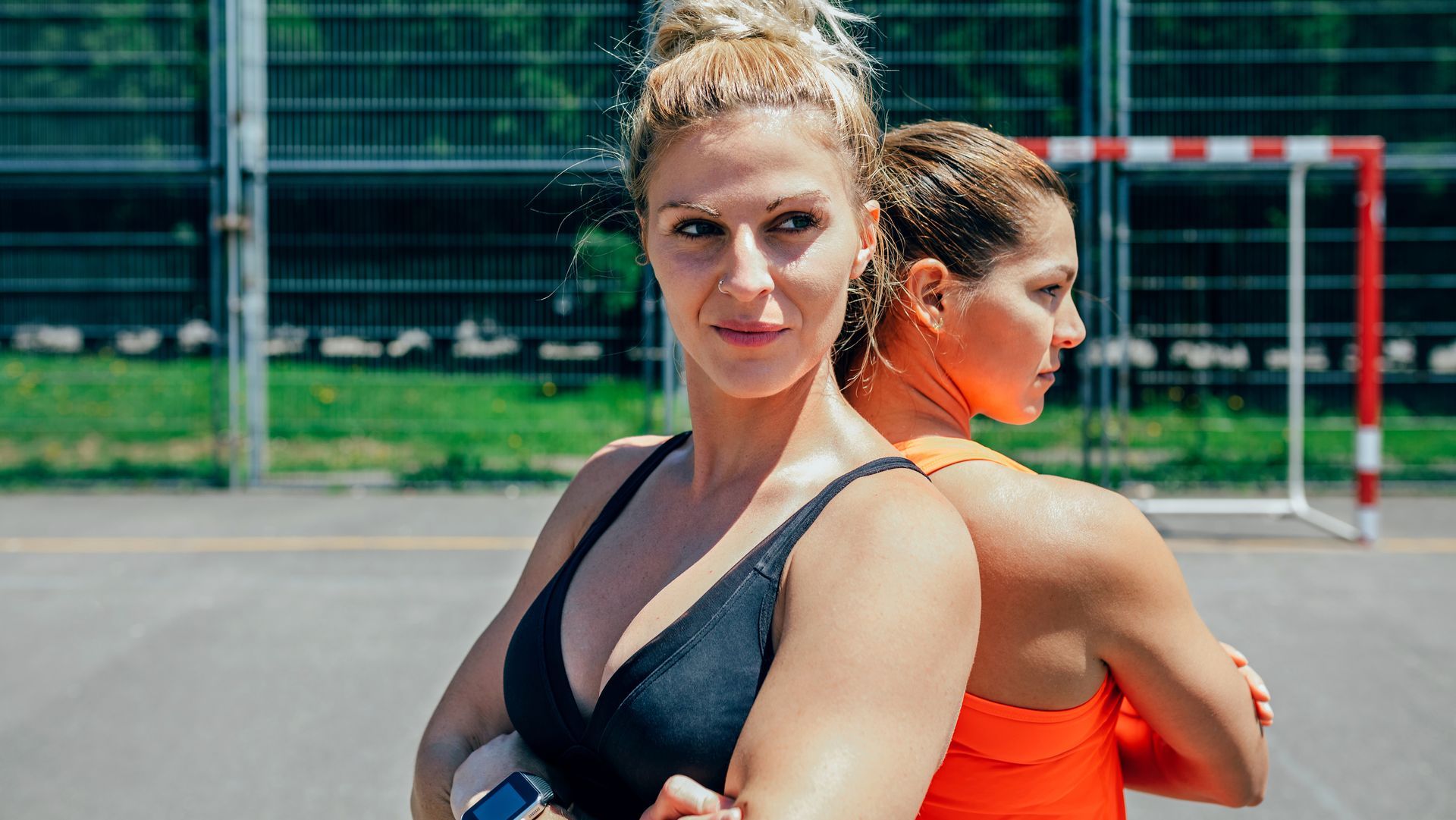
COACH’S CORNER - Training & Racing in the heat by Joshua Duff
get the lowdown on everything about the 200 miler from joshua duff

TRAINING AND RACING IN THE HEAT
As we move into the Australian summer, many of us will be training and racing in the heat. For those of us in Far North Queensland, it’s a normal part of day-to-day training and one we become fairly adept at managing. But for those in what are usually cooler environments, it can present significant challenges. At the same time, training in the heat can also produce positive physiological benefits.
How do we manage training and racing in the heat? And what are the benefits of training in hot conditions?
Heat and Physiology
The human body functions in a relatively narrow range of internal temperatures. This means in hot conditions, the body’s core temperature can be easily bumped above this range. In hot conditions, blood is pumped away from working muscles and to the surface of the skin to dissipate heat. Sweat production is also increased to maximise the evaporative cooling effect of the body.
The two key effects of exercise in the heat are, therefore, dehydration and rises in core body temperature.
The research suggests that dehydration occurs at as little as 2-3% body mass loss. This dehydration causes acute reductions in blood plasma volume and an increase in heart rate (Plews, 2024). As for rises in core temperature, there is a reduction in the body’s capacity for thermoregulation. Effectively, these physiological changes in hot weather can lead to decreased performance.
Heat and Cognitive Capacity
Recent research is also beginning to reveal the negative effects of dehydration on cognitive abilities and perceived reductions in performance.
A study from Watanbe et. al. (2024) measured the effects of mild dehydration on the performance of participants in a number of cognitive tests. Despite the mild dehydration not indicating any significant physiological effects, the participants cognitive function was impaired in these tests and their perceived exertion increased due to feeling hotter and more uncomfortable. This was corroborated by another 2024 study (Funnell, et. al.) who found that if an athlete thinks they are dehydrated, they will likely perform worse just by expectation.
Strategies for Training and Racing in The Heat
Pre-cooling:
Pre-cooling is the rapid removal of heat from the body prior to exercise and both recent and historical research has shown it provides larger capacity for heat storage. This can take many forms such as cold-water immersion (Siegel et. al., 2012), cooling vests (Arngrimsson et. al., 1985), and internal cooling such as ice-cold water or slushies (Byrne et. al., 2011; James et. al., 2015). It’s important to recognise, however, that the positive effects of pre-cooling likely attenuate after 20-25 minutes of exercise.
Hyper-hydration:
A 2023 metanalysis of 38 studies (Jardine et. al.) regarding hyper-hydration (that is, consuming water with some kind of osmotic aid prior to exercise) showed that this strategy can lower heart rate and core temperature in hot conditions. But start small to find your tolerance; for example, begin with 10ml of fluid p/kg of body mass and 20mg sodium p/kg of body mass in the 2 hours prior to exercise
Slushies:
Cooling during exercise using ice-cold water or slushies has been shown to be a highly effective method to cool the body and enhance exercise performance. A 2006 study (Mundel et. al.) found that ingesting cold water (3.5-34degrees Celsius) resulted in an 11% improvement in time to exhaustion during a cycling time trial.
Ice and skin cooling:
Whether hand cooling, ice vests or neck cooling, a range of studies have shown the benefits of ice or cold water on the skin and its impact on performance in the heat (Tyler & Sunderland, 2011; Scheadler et. al., 2013; Luomala et. al., 2012). There has also been research to suggest that facial water cooling can have a positive improvement in performance in the heat (Ansley et. al., 2008; Stevens et. al., 2016).
Clothing Choices:
Choosing lighter coloured clothes that don’t absorb as much heat and also lighter fabrics which allow more airflow and breathability.
Pace adjustments:
The reality of training or racing in the heat is that you simply need to adjust your pace to manage the training or effectively execute your race. This will mean running slower than usual and using other metrics such as heart rate, perceived exertion and power to determine intensity. Don’t expect to be able to execute your usual 8 x 1k threshold session at the same pace compared to cooler conditions.
Track core body temperature:
There are now new core body temperature sensors which can help you to monitor approximate core body temperature during exercise. This, therefore, enables you to adjust intensity if you find your core body temperature rising too much. It can also help you in heat acclimation to ensure you are bringing your core body temperature high enough to enable the adaptations you need.
Benefits of Training in the Heat
Although training in the heat can be tough and, at times, dangerous, there are numerous benefits to heat training. This is even if you are training for a cold race or during winter. And, these physiological adaptations can also assist in preparing for an event at high altitude if you do not have access to altitude training
Increased Blood Plasma Volume and Stroke Volume
A 2010 study (Lorenzo et. al.) on well-trained cyclists showed increases of blood plasma volume of up to 6.5% in only 10 days of heat protocols. Another 202 study (Ronnestad et. al) found a 4.2% increase in. blood plasma volume with 5 weeks of heat training. For ultra-runners, this means more blood flow to the skeletal muscle, less cardiac effort and potentially a higher V02 Max – essentially more aerobic power.
Improved Thermoregulation
Thermoregulation is your body’s capacity for keeping the body within normal boundaries in varying environmental conditions. Heat training can improve your body’s capacity to achieve this homeostasis in hot conditions.
Other Benefits
Fluid and sodium balance is a key element of managing exercise in hot conditions and training in the heat can allow for better fluid and electrolyte balance. Heat training can also enhance skin blood flow and sweat responses enabling more effective cooling. Thermal tolerance, that is your tolerance for exercising in the heat, is also a key benefit of heat training.
So take care in training and racing through the summer. It can be a dangerous time of year to be out there logging the miles. But if you take on some of the cooling protocols outlined here, adjust your intensity and be smart about your training, you will not only survive summer, but thrive in the following months due to the great benefits of heat training!
Joshua duff is the director and head coach at smurf endurance sports based in cairns, far north qld. he specialists in ultra running and ironman triathlon, however works with athletes from first time 5k runners to 200 mile and multi-day athletes. Find out more about josh and smurf endurance sports at smurfandsmurfette.com.au
iF YOU WOULD LIKE MORE INFORMATION ON BEING TRAINED BY josh, CLICK THROUGH HERE TO OUR AUtRA ENDORSED COACHES PAGE.
REFERENCES:
Arngrimsson, S.A., Petitt, D.S., Stueck, M.G., Jorgensen, D.K. & Cureton, K.J. 2004. Cooling vest worn during active warm-up improves 5-km run performance in the heat. Journal of Applied Physiology. 96:1867-74.
Butterfield, T.A., Best, T.M. & Merrick, M.A. 2006. The dual roles of neutrophils and macrophages in inflammation: a critical balance between tissue damage and repair. Journal of athletic Training, 41:457-65.
Byrne, C., Owen, C., Cosnefroy, A. & Lee, J.K. 2011. Self-paced exercise performance in the heat after pre-exercise cold-fluid ingestion. Journal of Athletic Training, 46:592-9.
Cheung, S. & Robinson, A. 2004. The influence of upper-body pre-cooling on repeated sprint performance in moderate ambient temperatures. Journal of Sports Science, 22:605-12.
Funnell, M. P., Moss, J., Brown, D. R., Mears, S. A. & James, L, J. (2024). Perceived dehydration impairs endurance cycling performance in the heat in active males. Physiological Behaviour, doi: 10.1016/j.physbeh.2024.114462.
James, C.A., Richardson, A.J., Watt, P.W., Gibson, O.R. & Maxwell. N.S. 2015. Physiological responses to incremental exercise in the heat following internal and external precooling. Journal of Medical Science in Sports, 25:190-9.
Jardine, W. T., Aisbett, B., Kelly, M. K., Burke, L. M., Ross, M. L., Condo, D., Periard, J. D. & Carr, A. J. 2023. the Effect of Pre-Exercise Hyperhydration on Exercise Performance, Physiological Outcomes and Gastrointestinal Symptoms: A Systematic Review. Sports Medicine, 53(11).
Minniti, A., Tyler, C.J. & Sunderland, C. Effects of a cooling collar on affect, ratings of perceived exertion, and running performance in the heat. European Journal of Sports Science, 11:419-29;
Plews, D. (2024). Pre-exercise hyperhydration as a strategy to enhance endurance performance. Training Science Summaries, 2024.
Siegel, R., Mate, J., Watson, G., Nosaka, K. & Laursen, P.B. 2012. Pre-cooling with ice slurry ingestion leads to similar run times to exhaustion in the heat as cold water immersion. Journal of Sports Science, 30:155-65.
Watanbe, H., Kadokura, Y., Sugi, T., Saito, K. & Nagashima. (2024). Influence of sustained mild dehydration on thermoregulatory and cognitive functions during prolonged moderate exercise. European Journal of Applied Physiology, 124 (11).









